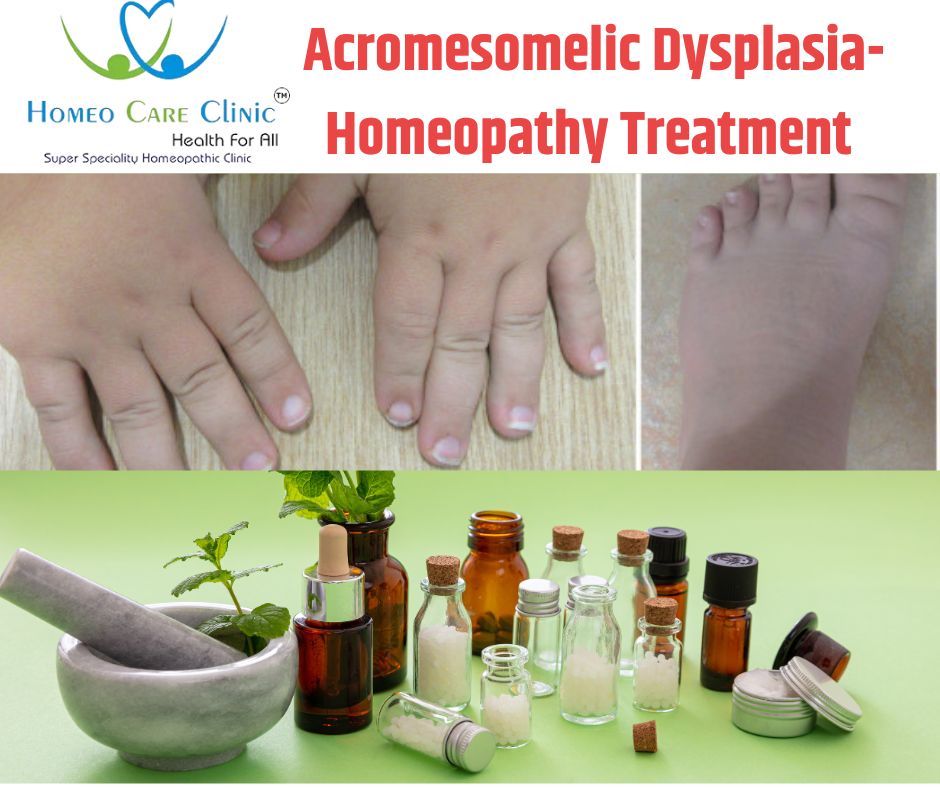Introduction:
Acromesomelic dysplasia is a rare genetic disorder characterized by abnormal bone growth, primarily affecting the limbs. It falls under the umbrella of skeletal dysplasias, which is a group of disorders involving abnormalities in bone development and structure. This condition typically manifests in infancy or early childhood and can have significant implications for an individual’s physical development and quality of life.
Causes:
The underlying cause of acromesomelic dysplasia is genetic mutations. Specifically, it is often inherited in an autosomal recessive pattern, meaning that both parents carry a copy of the mutated gene but do not display symptoms themselves. When both parents pass on their mutated gene to their child, it can result in the development of acromesomelic dysplasia.
Symptoms:
The hallmark symptoms of acromesomelic dysplasia include disproportionately short limbs, particularly the forearms and lower legs. Additionally, affected individuals may experience joint deformities, such as bowed legs (genu varum) or a reduced range of motion in the elbows and knees. Other features may include a small stature, a shortened neck, and abnormalities in the fingers and toes. These physical characteristics can vary in severity among individuals with the condition.
Advantages of Using Homeopathy:
Homeopathy offers a holistic approach to managing various health conditions, including genetic disorders like acromesomelic dysplasia. Homeopathy can be used alongside conventional medical interventions to enhance their effectiveness and minimize side effects. By addressing the underlying imbalances within the body, homeopathy aims to provide long-term relief from symptoms and improve the overall quality of life.
While specific homeopathic remedies should be prescribed by a qualified practitioner based on individual symptoms and constitution, here are five commonly used medicines for managing symptoms associated with acromesomelic dysplasia:
Calcarea Carbonica:
This remedy is indicated for individuals who experience slow development, weak bones, and deformities of the limbs. It is also useful for addressing conditions such as bowed legs and the curvature of the spine.
Silicea:
Silicea is beneficial for promoting bone growth and strengthening connective tissues. It is often prescribed for individuals with brittle bones, delayed development, and susceptibility to recurrent infections.
Rhus Tox:
For individuals experiencing stiffness and pain in the joints, particularly after periods of rest, Rhus Tox may provide relief. It is also helpful for improving flexibility and mobility in affected limbs.
Symphytum:
This remedy is indicated for promoting bone healing and addressing fractures or injuries to the bones. It can also help reduce pain and inflammation associated with skeletal abnormalities.
Thuja Occidentalis:
Thuja is recommended for individuals with deformities of the limbs, especially those resulting from genetic disorders. It may also be useful for addressing skin abnormalities and immune system imbalances.
Conclusion:
In conclusion, Homeo Care Clinic offers a holistic approach to treating Acromesomelic Dysplasia. The remedies mentioned above can treat the condition’s underlying causes and offer relief from the discomfort. However, it is important to consult a qualified homeopathic practitioner for the correct dosage and duration of treatment. Homeo Care Clinic provides comprehensive care for various ailments, including Acromesomelic Dysplasia, and offers customized treatment plans based on individual requirements.
To schedule an appointment or learn more about our services, please visit our website or give us a call. Our friendly staff will be happy to assist you.
Follow us on Facebook, Twitter, and Instagram for valuable insights into the world of homeopathy and holistic health.
Facebook – https://www.facebook.com/homeocareclinicpune
Instagram – https://www.instagram.com/homeocareclinic_in
Website – http://localhost/ns/homeo







